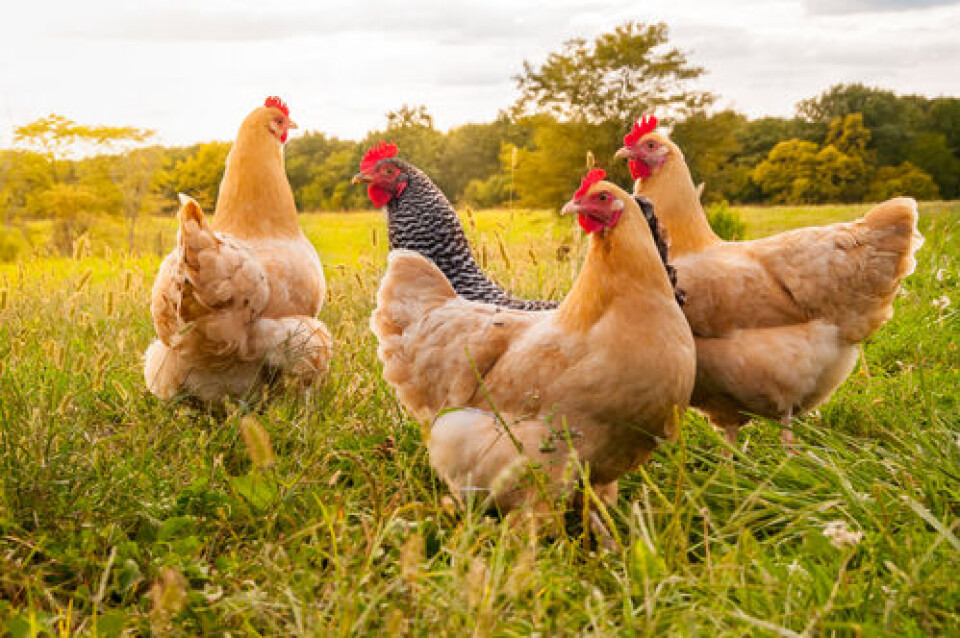-
Which fruits, vegetables and fish are in season in France this April?
Strawberry season begins, compensating for end of winter vegetables
-
Learning French: the origins and meaning of gratin
Understand the etymological roots of this beloved dish with a crispy, cheesy topping
-
Exclusive interview: New two-star Michelin chef Philippe Etchebest
Revisit our exclusive 2023 interview with the man behind Maison Nouvelle as he is rewarded in the 2025 Michelin Guide France
French egg shortages put spotlight on keeping hens at home
Avian flu has sent egg prices soaring and seen more and more people opting to raise poultry themselves. For those looking to give it a go, we review the rules and costs

Whether you are a fan of free-range eggs or simply want to add to your entourage of pets, you might have considered keeping hens.
If so, you are certainly not alone.
Between 2020 and 2021, the number of people rearing hens and other farmyard animals at home was up 11%, says Promojardin-Prom’animal, an association championing all things gardens and pets in France.
A rise in home-working and growing interest in sustainable food sources are among reasons cited and the current avian flu crisis is unlikely to diminish demand as people increasingly look to avoid rising prices and supply issues.
While it is easy to romanticise chickens in the backyard, the realities can be somewhat different, but if you do your homework first, keeping hens can be a rewarding experience.
The cost
The initial set-up cost varies, depending on whether you buy a ready-made house or build one. If you buy one, expect to pay around €200.
Coops and runs can often be bought secondhand.
Depending on the size of the henhouse you plan to install, it could fall under the planning rules.
Nothing is needed if it is less than 5m² but above that you need to make a déclaration préalable de travaux prior declaration to the mairie.
Permission is given tacitly if there is no opposition within a month (two months in certain protected areas).
Chickens need inside space in which to lay eggs and roost as well as a place to move around, scratch and feed.
They range in price, depending on breed and location, but you can pick up a bird for around €10.
Many markets sell them or you can check local advertising or rehoming charities.
Although chickens will eat kitchen scraps and leftovers, you also need to buy corn to top up their feed.
This can prove expensive, especially as the cost of corn has risen in recent months.
Rules and regulations
Check local rules about keeping chickens with your maire, as these can vary from commune to commune.
You should also consult current avian flu advice about keeping them outdoors. Generally, unless you are going into a farming business, your flock needs to be 50 hens or fewer.
Consider, too, whether you want to invest in a cockerel. Neighbours might object to being woken or disturbed by loud crowing.
Chickens can be smelly if not cleaned out regularly so, if you have close neighbours, make sure you are considerate of any impact on them.
Caring for your chickens
Another expense to consider is the cost of your flock becoming unwell.
Not all owners take their chickens to see a vet when ill but if you do, it can be expensive.
You might also want to get your chickens vaccinated to stop them falling victim to diseases.
It is important to help chickens keep themselves clean by providing a dust bath, which reduces the likelihood of mite infestation.
Making a hole in their outdoor area will enable them to clean themselves.
Note also that you cannot sell eggs unless you have an agricultural business.
Eating your chickens
If you decide to eat your chickens, make sure you research how to do this properly to avoid unnecessary pain.
Instruction videos on the proper preparation and butchering of chickens can be found online, or consult a local farmer or experienced owner.
Related articles
France announces bird flu support fund for stricken poultry farmers
Oh la vache ! 17 French animal expressions to try
Nearly 10,000 hens rescued by charity Champs Libres aux Poules
























